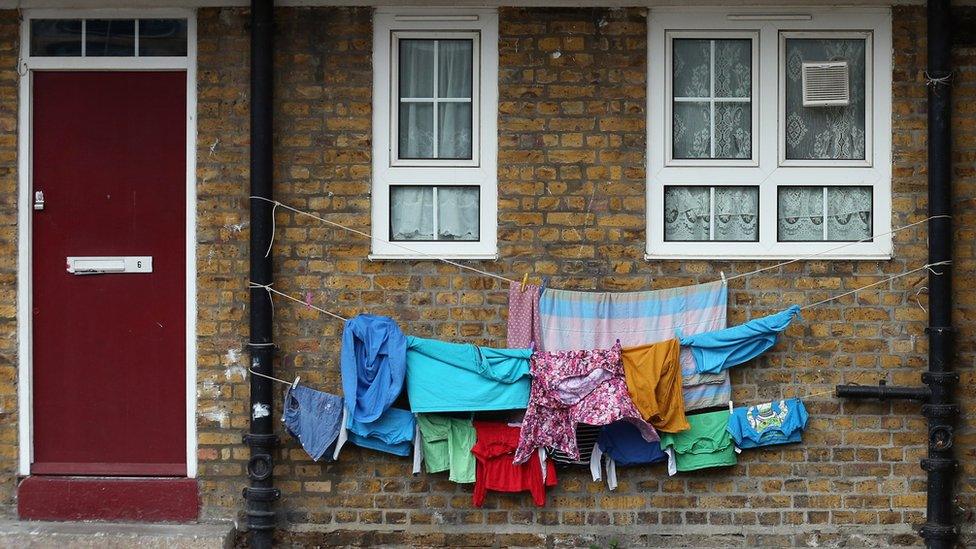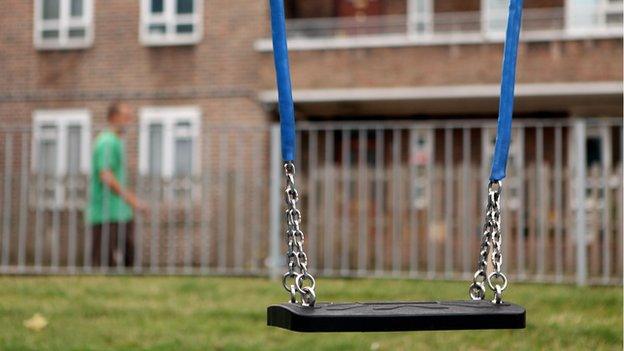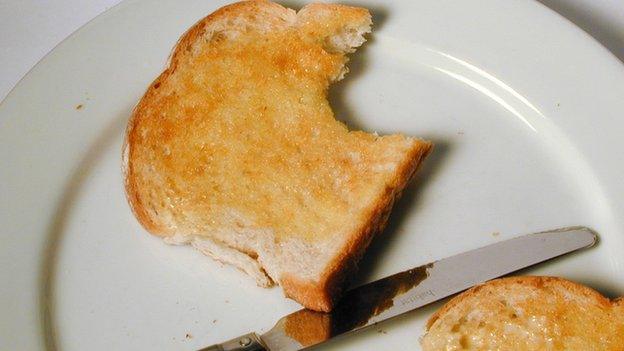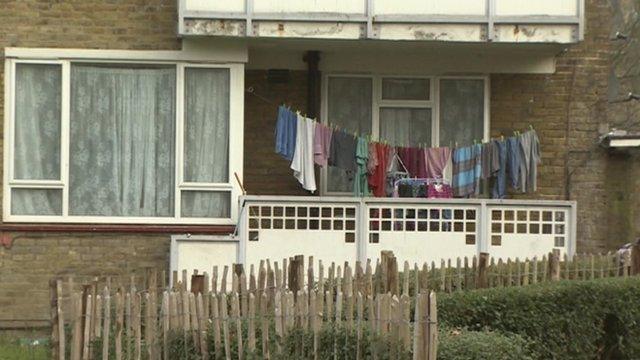Spare bedroom welfare changes 'fail to free up homes'
- Published

More tenants want to downsize but there is a shortage of smaller properties, says the report
Spare bedroom welfare changes are pushing families into hardship while failing to free up more homes, suggests a government commissioned report. , external
Since 2013, households deemed to have "spare" rooms lose benefit, with children of the same sex under 16 expected to share bedrooms.
If families occupy more suitable sized homes, housing waiting lists will be cut, ministers maintain.
But campaigners say this research suggests this is not happening.
The benefit cut, also known as the "bedroom tax" applies in England, Scotland and Wales.
Flat shortage
People affected lose the equivalent of £10 to £15 a week for one "spare" bedroom and between £20 and £25 for two, according to government figures.
The report, by Cambridge Centre for Housing and Planning Research, external and Ipsos MORI, was commissioned by the Department for Work and Pensions.
A survey of landlords for the report suggests more tenants want to downsize. But the authors say that most local authorities and social landlords reported "large numbers of people were unable to move because of a shortage of smaller homes".
Some claimants had not registered to move because they were aware of the shortage, while 42% of landlords struggled to let larger properties, the authors add.
But 51% of landlords who were building new home said they had altered their plans to construct more one-bedroom homes and fewer larger ones.
Research for the report in 2013 and 2014, with almost 1,000 benefit claimants, suggested one in five of those affected had looked to earn more money to offset the loss.

The change means families have to cut back on food, fuel, clothing and footwear, says the Child Poverty Action Group
But some reported a lack of employment opportunities locally, with some employers unable to offer extra hours.
Some tenants took in lodgers.
More than three quarters (78%) of those affected by the policy said they ran out of money every week or every month.
'Cutting back'
Some said they used up savings or borrowed from family or friends to pay the rent.
Interviews with people affected in summer 2014 showed:
57% spent less on household essentials
49% spent less on "non essentials"
25% borrowed from friends or family
16% looked to downsize
14% used savings
Of those who had cut back on spending:
46% spent less on energy
33% on travel
76% on food
"The research shows what anyone working with families already knows, the "bedroom" tax is forcing people to cut back on the basics of living - food, clothing and footwear," said Child Poverty Action Group chief executive, Alison Garnham.
"Affected households were also twice as likely than others to resort to borrowing."
Ms Garnham also pointed out only one in nine households had escaped the effects of the change by moving to a different property.
"Moving children out of their current school was the biggest barrier to moving," she added.
'Restoring fairness'
A Department for Work and Pensions spokesman said more recent figures, for 2015, showed a continuing fall in the number of households affected.
"It is wrong that under the previous system taxpayers had to subsidise benefit claimants to live in houses that are larger than they require.
"Removing the spare room subsidy has restored fairness to the system for claimants as well as the taxpayer, and the numbers subject to a reduction are falling.
"We know that there are cases where people may need extra support whilst they transition to our reform, that's why we have given councils £500m of funding to provide discretionary payments to those that need them, with a further £800m to be provided over the course of this parliament," said the DWP spokesman.
- Published8 December 2015

- Published11 March 2013
